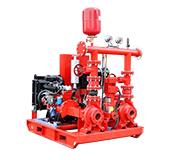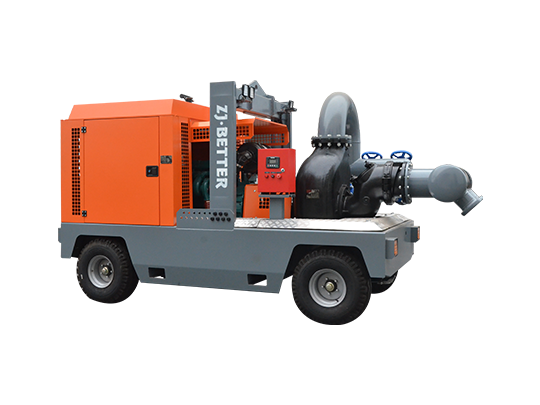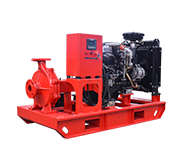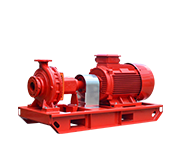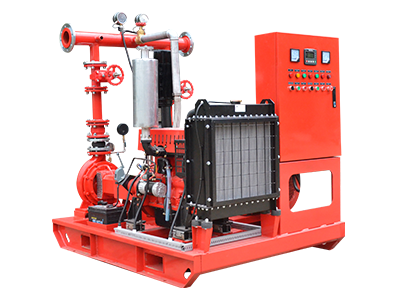- Fire Pump System
-
- UL-Listed Fire Pump SetEDJ End Suction Fire Pump SetEDJ Fire Pump SetEJ Small Flow Fire Pump SetFire Pump PackagesContainerized fire pump setDiesel Fire Pump SetED Small fire pump setElectric Jockey Fire Pump SetFire Pump Set with Jockey PumpFire Pump SystemSplit Case Fire Pump SetMutistage EDJ Fire Pump SetDiesel Fire Pump Set with Jockey PumpFire Fighting Pump SystemElectric Diesel Jockey Fire Pump SetFire Fighting Pump Set with Jockey PumpSmall Capacity Electric Fire Pump SetDJ Fire Pump Set with Jockey PumpEJ Fire Pump SetED Fire Pump Set (Electric+Diesel pump)Diesel Engine Fire Pump SetDiesel Fire Jockey PumpSmall Fire Pump SetEDJ Fire Pump SystemFire Water Pump SetFire Pump AssemblyDJ Small Flow Fire Pump SetCummins Engine Fire Pump Set
- Mobile Pump Unit
-
- Split Case Series Mobile Pump TruckSelf Priming Series Mobile Pump TruckCentrifugal diesel driven dewatering pumps open frame trailerFlow-mixing Mobile Pump TruckFlow-mixing Mobile Pump TruckManure Pump TruckP12 modle mobile Pump truckP10 Modle Mobile Pump Truck1000m³Self Priming Series Mobile Pump TruckLarge Flow Non-Clogging Mobile Fire Pump TrailerTrailer Mounted Fire PumpFire Emergency Mobile Pump TruckDiesel Engine Emergency Mobile Trailer Pump
- Diesel Fire Pump
-
- UL Listed Diesel End Suction Fire PumpXBC-S Diesel Split Case Fire PumpXBC-IS Diesel End Suction Fire PumpXBC-D Diesel Multistage Fire PumpVertical Turbine Diesel Engine Fire PumpDiesel Engine Single-Stage Centrifugal PumpXBC-IS Diesel End Suction Fire Fighting PumpXBC-S Diesel Engine Split Case Fire PumpDiesel Engine End Suction Fire PumpXBC-IS Diesel End Suction Fire PumpsZWC Diesel Engine Self Priming Pump for IrrigationDiesel Engine End Suction Fire Fighting PumpXBC-S Heat Exchange Diesel End Suction Fire PumpXBC-XA Diesel Engine End Suction Fire PumpXBC-IS Diesel Engine Fire PumpDiesel Engine End Suction Fire PumpXBC-IS Diesel Engine End Suction Fire PumpXBC-ISO Diesel Fire Fighting PumpPortable Fire PumpFire Booster Pump

Email: zjbetter@119pump.com
Tel:+86 15336708022(Gloria) +86 13306708055 (Ivy) +86 13357006058 (Serena) +86 13357022877 (Wendy) +86 17757009882(Kate)
Fax:0086-570-3010238
-
Do Fire Pump Packages Save Time and Money?
Yes, fire pump packages streamline installation, reduce labor costs, and often come with pre-assembled components, leading to quicker deployment and less chance of error during setup.
View more +
-
Are Jockey Pumps Necessary for Your Fire System?
Yes, jockey pumps are crucial for maintaining system pressure and ensuring that the main fire pump activates only when needed. They help prevent unnecessary wear on the main pump and conserve energy.
View more +
-
Are Jockey Pumps Necessary for Your Fire System?
Yes, jockey pumps are crucial for maintaining system pressure and ensuring that the main fire pump activates only when needed. They help prevent unnecessary wear on the main pump and conserve energy.
View more +
-
What is the Lifespan of a Typical Fire Pump?
The lifespan of a fire pump typically ranges from 15 to 25 years, depending on usage, maintenance, and environmental conditions. Regular maintenance can extend this lifespan.
View more +
-
How to Maintain Your Diesel Engine Fire Pump?
Regular Inspections: Weekly tests, monthly flow tests. Check Fluids: Maintain oil, coolant, and fuel levels. Inspect Components: Belts, hoses, filters. Run Tests: Ensure proper operation and check for leaks. Professional Servicing: Annual maintenance checks.
View more +
-
Can a Mobile Pump Handle Emergency Situations?
Yes, mobile pumps are designed for rapid deployment in emergencies. They provide flexibility, can be transported to various locations, and are effective for firefighting in areas without fixed infrastructure.
View more +
-
Are Electric Pumps More Efficient Than Diesel?
Yes, electric pumps are generally more efficient than diesel pumps for several reasons, though both types have their advantages depending on the application. Let’s explore why electric pumps are often considered more efficient:
View more +
-
10 Essential Fire Pump Maintenance Tips
Proper maintenance of fire pumps is vital to ensure they perform reliably during emergencies. Here are ten essential fire pump maintenance tips to keep your system in optimal condition:
View more +
-
Why Are Fire Pumps Crucial for Disaster Preparedness?
Fire pumps play an essential role in disaster preparedness, ensuring that buildings and industrial facilities are equipped to handle fire emergencies effectively. Here’s why fire pumps are crucial in any disaster readiness plan:
View more +
-
Can Jockey Pumps Improve Your Fire Protection System?
Yes, jockey pumps play a crucial role in improving fire protection systems by maintaining consistent water pressure. Here's how they contribute:
View more +
-
What are the warning signs of a failing fire pump?
Warning signs of a failing fire pump may include unusual noise during operation, reduced water pressure or flow, frequent activation of the pressure relief valve, leaks in the pump housing, or erratic starts and stops. These symptoms indicate that the pump may require immediate maintenance or replacement to ensure proper function.
View more +
-
Are fire pumps required in all buildings with fire sprinkler systems?
Not all buildings with fire sprinkler systems require a fire pump. The need for a fire pump depends on the building’s height, size, and the available water supply pressure. If the municipal water supply is insufficient to meet the pressure and flow demands of the sprinkler system, a fire pump is necessary to provide adequate water pressure.
View more +
-
What role do pressure relief valves play in fire pump systems?
Pressure relief valves are crucial for preventing over-pressurization in fire pump systems. They ensure that the pressure does not exceed the system’s maximum rating, which could otherwise damage pipes, fittings, or other equipment. The relief valve opens when the pressure exceeds a set limit, protecting the system from potential failures.
View more +
-
What happens if the fire pump doesn’t start during a fire?
If the fire pump fails to start during a fire, it can compromise the fire suppression system’s ability to deliver water at adequate pressure, potentially leading to severe fire damage. Fire pump controllers usually have built-in alarms and fail-safe systems to alert operators to malfunctions. Regular testing and maintenance are crucial to prevent such failures.
View more +
-
How long can a fire pump run during an emergency?
A fire pump is designed to run as long as necessary during a fire emergency. It will continue operating until the fire is controlled, and the fire suppression system is no longer demanding water. However, diesel-driven fire pumps typically have fuel storage sufficient for at least 8 hours of continuous operation, in line with NFPA standards. Proper maintenance ensures the pump can run reliably for extended periods.
View more +
-
What is a fire pump controller, and how does it work?
A fire pump controller is an automatic device that starts the fire pump when a drop in pressure is detected. It monitors system conditions and initiates pump operation based on signals from pressure sensors, ensuring that the pump activates only when needed.
View more +
-
Can a fire pump be used for other building water needs?
No, a fire pump should only be used for the fire protection system. It is designed specifically for emergency fire suppression and should not be used for general water distribution in the building to ensure reliability and availability in an emergency.
View more +
-
What are the fire pump requirements for large residential complexes and high-rise buildings?
In large residential complexes and high-rise buildings, fire pumps are essential for supplying water to sprinkler systems and standpipes, particularly in taller buildings where the municipal water pressure may be insufficient to reach upper floors. Jockey pumps ensure that pressure is maintained throughout the system, providing consistent readiness for fire suppression. High-rise buildings often have complex zoning and compartmentalization to prevent the spread of fire, and fire pumps must be powerful enough to provide water across multiple zones simultaneously if a fire breaks out in more than one area. In residential complexes, fire safety is critical due to the presence of numerous occupants, so fire pumps must be reliable, regularly tested, and properly maintained to ensure they can de
View more +
-
How do fire pumps assist in safeguarding large entertainment venues like stadiums and arenas?
Stadiums and arenas, which host thousands of people during concerts, sporting events, and other large gatherings, require extensive fire protection systems to ensure the safety of attendees, staff, and performers. Fire pumps play a crucial role by providing the water pressure needed to supply fire suppression systems, such as sprinklers and hydrants, throughout these massive structures. Jockey pumps maintain system pressure, ensuring that the fire suppression systems are always ready to activate at a moment’s notice. Given the large, open spaces in stadiums, fire pumps must be capable of delivering water over long distances and across multiple levels, from seating areas to backstage facilities and concession stands. Fire suppression systems may also need to be designed to handle potential
View more +
-
What role do fire pumps play in fire safety for data centers and server farms?
Data centers and server farms house critical IT infrastructure that supports the functioning of businesses, governments, and services around the world. A fire in these facilities could result in significant data loss, operational downtime, and damage to sensitive electronic equipment. Fire pumps provide essential water supply and pressure to fire suppression systems, such as pre-action sprinklers or water mist systems, which are designed to control and extinguish fires with minimal risk of water damage to the equipment. Jockey pumps maintain pressure to ensure that the systems are ready for immediate activation in case of a fire. In many cases, fire protection systems in data centers are carefully designed to detect fires at an early stage and respond quickly while minimizing the risk of w
View more +
-
How do fire pumps support fire safety in energy production facilities, such as power plants or wind farms?
Energy production facilities, including power plants and wind farms, present unique fire safety challenges due to the presence of high-voltage electrical systems, flammable fuels, and complex machinery. Fire pumps are crucial in providing sufficient water pressure to fire suppression systems that protect critical infrastructure like turbines, transformers, and fuel storage areas. In power plants, fire pumps may also support foam systems designed to combat fires involving oil, gas, or other flammable materials. Jockey pumps ensure the system's pressure remains stable, so fire suppression systems are ready to activate immediately in case of an emergency. Wind farms, while less prone to fire, also require robust fire safety measures due to the remote location of turbines and the potential fo
View more +
-
What are the key considerations for fire pumps in industrial manufacturing plants?
Industrial manufacturing plants often deal with hazardous materials, heavy machinery, and complex processes, making fire safety a critical concern. Fire pumps are essential in these facilities for delivering sufficient water pressure to fire suppression systems like sprinklers, standpipes, and specialized suppression systems, such as foam or gas-based systems used for chemical fires. Jockey pumps help maintain pressure in these extensive systems, ensuring they are always ready to activate immediately. In many industrial plants, fire pumps need to handle large volumes of water to cover expansive areas like production floors, storage facilities, and hazardous material zones. Additionally, fire suppression systems must be designed to address specific risks, such as oil-based fires, electrical
View more +
-
How do fire pumps function in high-hazard areas like chemical plants or oil refineries?
High-hazard areas such as chemical plants and oil refineries present significant fire risks due to the presence of volatile chemicals, gases, and flammable liquids. Fire pumps in these environments must be designed to supply water, foam, or other fire suppression agents to systems capable of rapidly extinguishing fires in highly volatile conditions. Jockey pumps ensure that pressure is maintained throughout the system, guaranteeing quick activation when a fire is detected. In chemical plants, fire suppression systems may need to handle specific chemical reactions or fires caused by hazardous materials, meaning fire pumps are often part of foam systems or other specialized suppression systems that prevent the spread of fire while minimizing the risk of further chemical reactions. Additional
View more +
-
What are the challenges of fire pumps in cold climates or extreme weather conditions?
In cold climates or areas prone to extreme weather, fire pumps face unique operational challenges that require careful design and maintenance. Freezing temperatures can cause water to freeze in the pipes, potentially damaging the fire pump and other components of the fire suppression system. To mitigate this, fire pumps may be installed in heated enclosures, and antifreeze solutions or dry-pipe systems are often used to prevent freezing. Jockey pumps help maintain system pressure, but in extreme weather, they must be monitored closely to ensure they don’t overcompensate for changes in pressure caused by temperature fluctuations. High winds, flooding, or snow accumulation can also impact the performance of fire pumps, especially in outdoor or exposed installations. Ensuring that fire pumps
View more +
-
How do fire pumps support the fire safety of large public events, such as festivals and outdoor concerts?
Large public events, such as festivals, outdoor concerts, and sporting events, often occur in temporary or open-air settings that lack the built-in fire safety infrastructure of permanent venues. Fire pumps are crucial for providing water pressure to portable fire suppression systems, such as temporary sprinklers, hydrants, or foam systems. Jockey pumps help maintain consistent pressure, ensuring that the system is ready to respond quickly to any fire emergencies. In these temporary setups, fire pumps may need to draw water from nearby reservoirs, lakes, or portable water tanks, requiring flexibility and adaptability in their design. Since large crowds can complicate evacuation efforts, fire pumps play a vital role in controlling fires quickly and limiting their spread, minimizing risks to
View more +

